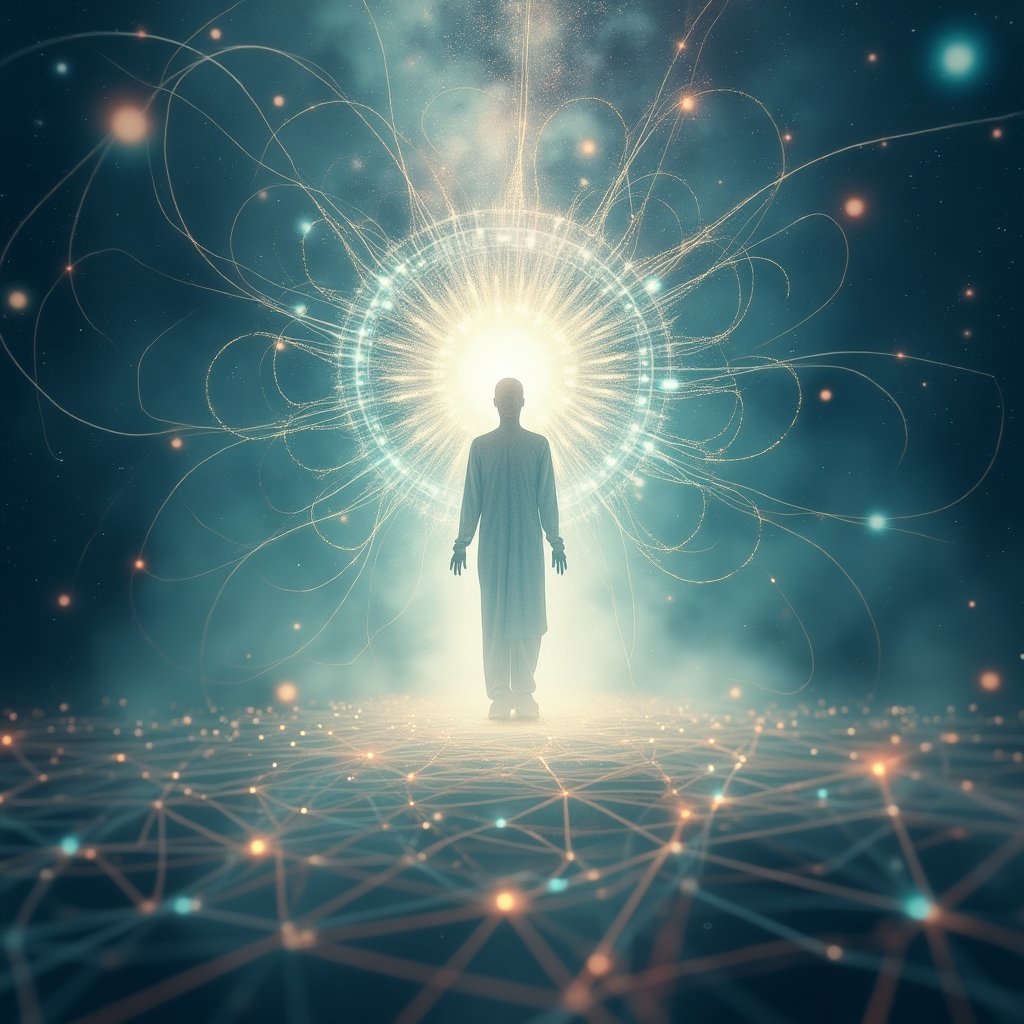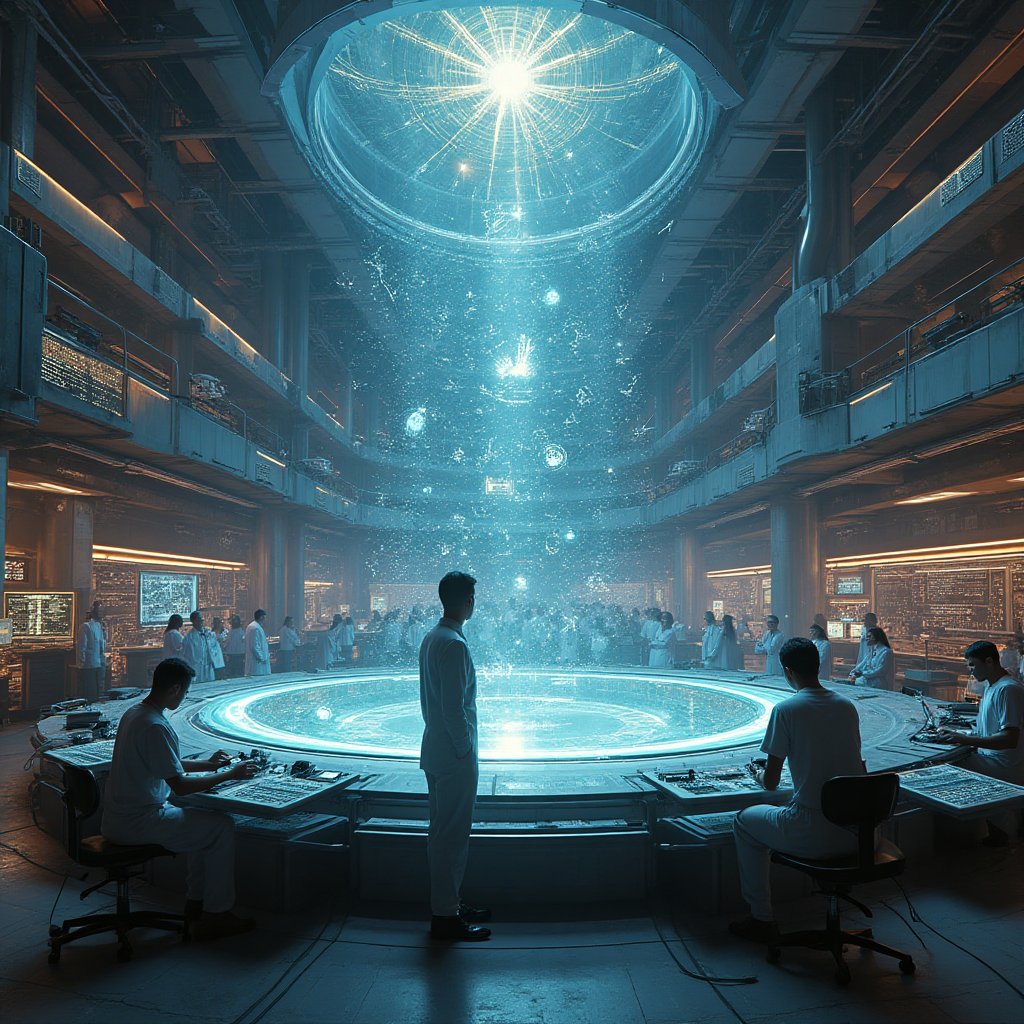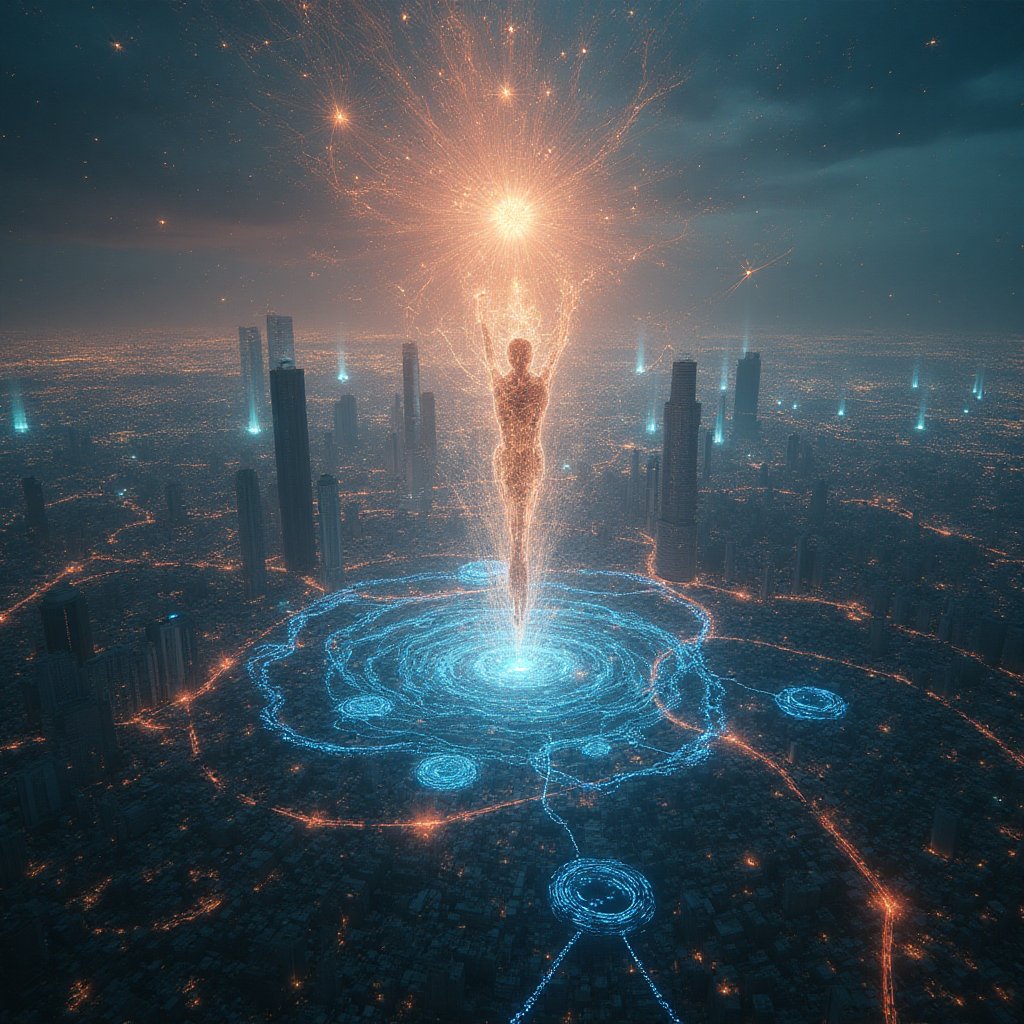What if your final destination isn’t a pearly gate in the sky or the wheel of reincarnation—but a server farm humming indefinitely in a remote data center? The idea might sound straight out of a Black Mirror episode, but advances in artificial intelligence (AI) and neuroscience are rapidly pushing humanity into uncharted spiritual and technological territory. Imagine a future where your consciousness could be uploaded, mimicked, or preserved indefinitely in a digital format. Is this digital afterlife a form of immortality—or a high-tech illusion? And perhaps more provocatively, will this redefine what billions of people across cultures and religions believe about eternal existence?
We’ve long relied on religious belief systems to give meaning to our mortality—whether through the promise of heaven, reincarnation, or even nirvana. But the rise of “digital immortality,” turbo-charged by AI breakthroughs, is challenging those age-old doctrines. Companies like Eternime and Replika are already experimenting with ways to recreate our personalities post-mortem. Philosophers, technologists, and spiritual leaders find themselves questioning what it means to be human when death may no longer be absolute. Could this be the next great revolution in human civilization? Or are we venturing too far into realms meant to remain mysterious?
In this article, we’ll explore how AI could fundamentally reshape humanity’s thoughts surrounding the afterlife, challenging centuries-old religious doctrines while provoking fresh ethical and philosophical quandaries. This journey isn’t just theoretical. It’s happening now, whether you’re ready to believe it or not.
1. The Historical and Spiritual Concept of the Afterlife Across Religions
For millennia, humanity has grappled with one of life’s most profound questions: What happens after we die? Across continents and cultures, every major religion has provided its own answer to this mystery, threading intricate beliefs into the fabric of human identity and morality. For Christians, the afterlife means eternal reward or punishment in Heaven or Hell—a concept deeply rooted in scripture like the Bible’s Revelation 21:4, which describes a realm where pain and suffering give way to endless peace. Similarly, Islam envisions an eternal paradise filled with spiritual fulfillment and rewards for the faithful, as described in the Quran.
Meanwhile, Eastern religions such as Hinduism and Buddhism take an entirely different approach, focusing on cyclic existence and karmic justice. Hindu beliefs center around reincarnation—the soul’s journey through cycles of birth, life, death, and rebirth, aiming ultimately to achieve Moksha, or liberation from this cycle. Buddhism shares a similar framework but targets the attainment of Nirvana, the complete cessation of suffering and desire that defines existence.
Even ancient civilizations—like the Egyptians, who believed in a well-ordered kingdom of the dead, or the Greeks, with their underworld ruled by Hades—focused significant cultural resources on preparing for what lay beyond mortality. These belief structures aren't just spiritual—they’re deeply practical. They reinforce moral accountability by linking earthly behavior to eternal consequences.
Yet, amidst this diversity, there’s a unifying thread. Year after year, century after century, belief systems across the globe have circled around three elemental concepts: the soul, a form of judgment, and either a reward or punishment that follows. All hinge, in some way, on the intangible essence—our “selves.” But what happens when AI can replicate that essence in the binary form? The idea of a digital afterlife could supplement, contradict, or completely upend these notions, pressing humanity to grapple with an uncomfortable question: Is technology redefining the spiritual?
2. The Emergence of Digital Immortality and the Concept of Uploading Consciousness
Imagine a world where your essence—your thoughts, memories, quirks, and consciousness—lives on, not in the spiritual heavens promised by religion but in the intricate tapestry of binary code. Sounds eerily like the plot of the latest Black Mirror episode, doesn’t it? But this idea of "digital immortality" is no longer confined to science fiction; it's becoming a serious frontier in the tech landscape. At the heart of this evolution lies the audacious concept of uploading consciousness—an attempt to replicate, and perhaps even preserve, the human mind as a digital entity.
This pursuit isn’t being undertaken in the shadows. Visionaries like Ray Kurzweil, a futurist and director of engineering at Google, have long preached about reaching the "Singularity," a hypothetical point where artificial intelligence surpasses human intelligence. Kurzweil believes that by the mid-21st century, it will be possible to transfer human consciousness into non-biological entities. His predictions, while polarizing, are rooted in exponential advancements in AI, neural networks, and quantum computing.
And he’s not alone. Companies and academic institutions are setting the stage for a future where consciousness might transcend the fragile vessel of the human body. Take Eternime, a startup aimed at creating avatars of deceased individuals by merging AI and user-submitted data like photos, texts, and even vocal recordings. Or consider Replika, the chatbot designed to clone your personality. Even Microsoft filed a patent in 2021 for creating AI-driven "chatbots" resembling a deceased person's digital footprint.
But how does this technology work? At its core, the idea revolves around progress in neuroscience and artificial intelligence. AI models, fueled by machine learning, analyze and replicate patterns of human behavior and thought. Theoretically, by mapping the neuronal activity in a person’s brain through tools like functional MRI and converting this data into computable frameworks, scientists could mimic the human mind digitally. However, let’s not sugarcoat it—current technology is still leagues away from creating an entity as dynamic as the human mind.
This reality raises a question worth exploring: If we succeeded in crystallizing human consciousness into code tomorrow, would we truly achieve immortality—or would we only craft an elaborate puppet, capable of mimicking life but devoid of the intangible spark that defines our humanity? Skeptics argue that mimicking is not the same as preserving. Think of it this way: a photo of you on Instagram at the Eiffel Tower is a representation, not the real you. By the same analogy, is a digital consciousness just a glorified mimic? Or something more?
But let’s dive deeper into the existential paradox. The "replicated you" could evolve. Imagine conversing with a digital twin of someone like Elon Musk embedded with neural inputs regularly updated posthumously. Does that extended existence count as a continuation of Musk’s consciousness, or is it a forked version destined to dance in its own digital destiny?
Where do we draw the line between simulation and authenticity? Concepts like this invite the age-old philosophical quandary of identity. Is consciousness uploading the technological gateway to spiritual "immortality," or just humanity’s ultimate exercise in narcissism? More importantly, does the soul—if it exists—follow us into the void of digital afterlife? Or does it remain tethered to the flesh and bone of our reality? The answers remain tantalizingly out of reach for now.
3. "The Digital Soul": How Technology Challenges Traditional Concepts of Spirit and Self
Ah, the soul—humanity’s most profound, slippery concept. It has eluded every scientific microscope, philosophical thesis, and theological dogma for millennia. If anything, the notion of "the soul" has always resisted redefinition, belonging in unseen corners far outside our measurable world. But what if technology’s expanding reach barges into the room, claiming it can replicate or house this elusive essence? Enter the daunting proposition of the "digital soul."
To fully grasp the challenge AI-driven immortality poses to spiritual traditions, consider Cartesian dualism, the philosophical notion introduced by 17th-century thinker René Descartes. In this view, the mind and body are separate entities—a neat divide that allowed room for a soul separate from the physical form. Dualism aligns well with many religious doctrines: Christianity suggests an eternal soul residing beyond bodily death, while Hinduism proposes a reincarnating spirit cycling through lifetimes. But now, technology muddies the water. If a brain’s data could be uploaded to a cloud, are we still talking about the "soul," or are we purely in the realm of the material?
Take materialists, for instance. If consciousness is reduced purely to chemical and electrical signals in the brain, as materialist thinkers might insist, then reproducing it in technology doesn’t fundamentally challenge religious doctrines—it obliterates them. If your "soul" resides fully in algorithmic calculations, does that leave any room for metaphysical faith?
Now zoom out and consider theological implications. Let's pick a widely practiced faith like Christianity. The Bible frequently underscores the eternal dominion of God over life and death. Suppose science hands you a cheat code for immortality in pixels. What happens? Some Christian theologians argue that eternal life is a privilege earned through divine grace, not an invention achieved at a Silicon Valley lab. AI afterlife, critics might contend, is hubris wearing the mask of progress.
Meanwhile, other faiths might find humor—or sorrow—in AI’s attempts to preserve what’s impermanent. Consider Buddhism, which views attachment to worldly forms as one of the primary causes of suffering. To a Buddhist mind, clinging to digital immortality seems like digital samsara, a ceaseless loop of ego-driven existence, preventing the liberation sought in Nirvana.
This tension brings us full circle to one valuable question: Is a "digital soul" practical, or is it hollow? If you think about it, the answer hinges on what you believe defines "you." For example, let’s turn to future families interacting with AI-avatars of their lost parents. They might swear they're talking to "Dad," reliving cherished advice, warmth in digital form. But under the hood, it’s code and mimicry—a cutting-edge hallucination.
Call it the uncanny valley of faith and identity: The digits of a digital soul may mirror, resonate, even empathize, but does it transcend the mere housing of inputs and outputs? Cultural philosopher Marshall McLuhan once mused that "the medium is the message." Well, now, the question looms—can medium substitute for meaning? Theologians, tech experts, and futurists all sit on opposite ends of a vast philosophical spectrum on this subject, and no consensus is in sight.
In many ways, humanity’s march toward replicating the soul through algorithms feels like seeking a mirage in the desert. The closer we get, the more the contours shift. But the journey itself? That might just reshape how we define religion, mortality, and the uncharted essence of being human forever.
6. Sociocultural Impacts and the Human Search for Meaning
Perhaps the most compelling aspect of digital immortality is what it says about us—a species eternally grappling with the fear of death. For centuries, humanity has created myths, religions, and rituals to make peace with the fact that our time on Earth is finite. But what happens when technology offers the promise of defying nature? Digital afterlife platforms like Eternime or Replika don’t just serve as a tool for grief; they challenge the very definition of death. Is uploading consciousness another way of fabricating myths, but this time on a microscopic level of data and bytes?
Imagine this scenario: a family grieving the loss of a loved one connects daily with an AI-driven replica that mimics the deceased’s personality. Will that bring peace or an unhealthy dependency? It’s already happening, albeit in less sophisticated ways. Take Roman Mazurenko, whose closest friends turned his texts into an interactive AI chatbot to cope with his death. What started as a heartfelt tribute sparked debates: does this cross boundaries, or is it a modern form of remembrance?
Some might argue these virtual connections provide hope to those drowning in sorrow, much like sacred rituals do in religious funerals. Others could feel an eerie detachment—saying goodbye to life’s natural flow. A 2018 survey conducted by the Pew Research Center indicates a steady rise in people identifying as “nones” (those claiming no religious affiliation). Could digital immortality replace spiritual needs, becoming a secular sanctuary for contemplation of mortality? Or could it lead us further down the rabbit hole of alienation, where existence feels bereft of authenticity?
Culturally, AI-driven immortality may force us to reconfigure our rituals around death itself. Think of how social media has already redefined modern memorial practices. Facebook has profiles of deceased loved ones function as digital mausoleums, places where friends and family continue posting messages. Companies like Literal Human even promise post-life management tools that allow your AI twin to keep interacting with the living. Doesn’t this feel uncomfortably close to bringing the dead "back to life"? But then again, who hasn’t wanted to hold onto a little piece of someone they lost?
What’s more, questions about equity linger ominously on the horizon. Will digital afterlife technologies mirror the same systemic divides as healthcare or education? Will only the wealthy afford these digital reincarnations, leaving the economically disadvantaged behind in humanity’s digital evolution? If the thought makes you uneasy, you’re not alone. Critics, like ethicist Nick Bostrom, have raised alarms over the monetization of death and the powers giant corporations could wield over our digital souls.
Yet, one could argue that digital immortality also fulfills a profound human yearning: the quest for meaning in a chaotic, ephemeral existence. Few of us want to die and be forgotten; fewer still want to leave loved ones behind with unanswered questions. Maybe, through AI, we’re not trying to escape death as much as we’re trying to reconcile with it—grasping for anchors in a world that inevitably sweeps us away. What it truly means to be immortal may not be etched in code but in the powerful, messy web of what it means to be human.
Conclusion: The Redefinition of the Afterlife
As we stand on the edge of a technological revolution, where artificial intelligence promises to recreate and preserve consciousness, humanity is left with new existential quandaries. Can something as intricate and intangible as the human soul—if such a thing exists—be transferred into algorithms? Or are we simply duplicating the essence of a being without ever truly capturing their "self"? These questions aren’t just philosophical. They’re deeply personal, cutting to the heart of what it means to live and die.
The allure of digital immortality is undeniable. For some, it’s a balm against the terror of mortality, a chance to keep living—even if only in a synthetic sense. For others, it’s an affront to the natural order, a hubristic attempt to play god with bytes and circuits. But as Ray Kurzweil famously noted about the Singularity, this isn’t just a question of "if"; it’s a question of "when." What societies do with these capabilities will define not only our legal and ethical frameworks but also our spiritual and cultural identities for generations to come.
And then there’s religion. Will the Vatican or Mecca accept an AI Jesus or Muhammad avatar facilitating prayers? Will Buddhism agree that consciousness floating in the ether is still subject to karmic cycles? Or—more provocatively—will today’s secular "tech elite" become tomorrow’s priests, arbiters of humanity’s digital eternity? The struggle to reconcile tradition with progress is likely to be as fierce as the Reformation or the Enlightenment, challenging millennia-old assumptions about God, man, and the cosmos.
Ultimately, can we have it both ways? Could humanity strike a balance, employing AI to process grief without overshadowing life’s fleeting beauty? In the end, digital immortality may force us to revisit age-old wisdom: Accept life’s impermanence, not as a curse, but as a gift. Perhaps immortality has less to do with how long we live and more with how we live—leaving ripples in the lives we touch.
What do you think? If given the chance to exist digitally after death, would you take it? Or is the essence of life found precisely in its limited nature? Join the conversation below.
Don’t forget to subscribe to our newsletter for more cutting-edge conversations like this. Be part of the debate, like, share, and comment—because once you’re in iNthacity: the "Shining City on the Web," there’s no better place to explore the future.
Addendum: The Afterlife and Pop Culture—Speculations and Storytelling
Pop culture has long been fascinated with the idea of transcending human mortality through technology, crafting narratives that intertwine societal fears and aspirations. From dystopian warnings to utopian dreams, storytelling has become an imaginative playground for exploring the implications of AI, consciousness, and the afterlife. These depictions not only entertain but also serve as thought experiments, shaping public discourse about the possibilities of digital immortality.
A prime example is the groundbreaking TV series Black Mirror, particularly the Emmy-winning episode “San Junipero”. This episode envisioned a world where consciousness could be uploaded into a digital paradise. The serenity of an eternal beachfront existence contrasts with the unsettling question: Are these digital avatars truly the people who created them? Similarly, Amazon’s sci-fi comedy Upload explores virtual afterlife services where the wealthy enjoy bespoke digital heavens, offering a satirical but thought-provoking take on class inequality and immortality. Both series resonate with our anxieties about AI-mediated afterlife systems—and where humanity draws the line between liberation and commodification.
On the silver screen, films like Transcendence, starring Johnny Depp, take a more somber approach, asking whether merging human consciousness with AI robs us of what makes us human. Similarly, Her, directed by Spike Jonze, delves into the emotional complexities of connecting with artificial consciousness. These films step beyond the technological questions, challenging audiences to contemplate the emotional and existential trade-offs of digital self-preservation.
Literature has also played a vital role in fueling our imagination about digital immortality. Richard K. Morgan’s Altered Carbon, later adapted into a Netflix series, paints a world where human minds are stored in "stacks," allowing bodies to become disposable shells. This cyberpunk vision disrupts the boundaries of identity, asking if continuity of consciousness truly equates to survival of the self. Such thought experiments highlight the contradictions and pitfalls of pursuing eternal life, offering cautionary tales about the cost of conquering death.
Even the gaming industry has embraced this theme. In the futuristic RPG Cyberpunk 2077, players grapple with philosophical dilemmas tied to the integration of human consciousness into technology. Similarly, the haunting narrative of SOMA forces players to confront the unnerving consequences of transferring consciousness to artificial bodies, challenging perceptions of identity and morality through gut-wrenching storytelling.
These cultural narratives serve dual purposes. On one hand, they provide a creative lens to process technological breakthroughs; on the other, they prepare audiences for the ethical and existential debates that loom on the horizon. While entertaining, they blur the lines of fiction and reality, making us wonder: Will we soon inhabit worlds once confined to speculative fiction?
As these stories continue to captivate, they invite us to reflect on profound questions about our humanity: Could we accept a digital self as truly "us"? Or are we chasing an illusion, a dream of immortality that risks eroding the sacred value of life and death? Through pop culture, our grapple with these questions becomes not just intellectual, but deeply emotional and personal. What do you think: Is the journey worth the destination?
Wait! There's more...check out our gripping short story that continues the journey: The Ghost Circuit
Disclaimer: This article may contain affiliate links. If you click on these links and make a purchase, we may receive a commission at no additional cost to you. Our recommendations and reviews are always independent and objective, aiming to provide you with the best information and resources.
Get Exclusive Stories, Photos, Art & Offers - Subscribe Today!

























Post Comment
You must be logged in to post a comment.